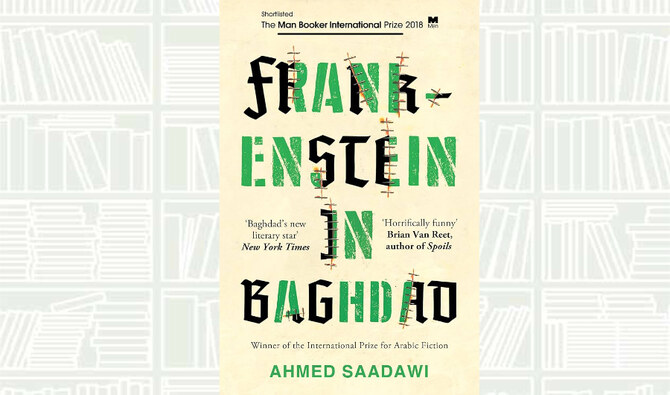Author: Ahmed Saadawi
This novel by Iraqi author Ahmed Saadawi blends elements of horror, satire, and magical realism to craft a compelling commentary on the human condition in war-torn Baghdad.
Set in the aftermath of the 2003 US invasion, the story follows a junk dealer named Hadi who decides to assemble a “human” from the body parts of victims left on the streets after suicide bombings and insurgent attacks.
Hadi’s creation is a patchwork creature that comes to life and begins roaming the streets of the city, seeking revenge on those responsible for the deaths of the individuals from whom it was assembled.
As the creature carries out its violent mission, a rich cast of characters is drawn into the story, including an elderly woman haunted by the ghost of her late husband, a journalist seeking to break a major story, and a government agent tasked with hunting down and destroying the creature.
Through these interwoven narratives, Saadawi creates a darkly humorous and thought-provoking allegory for the chaos in post-invasion Iraq. The monster serves as a physical embodiment of the trauma, violence, and social breakdown experienced by the Iraqi people, with its bloodthirsty quest for vengeance mirroring the cycle of retribution that gripped the country.
What struck me most was how Saadawi was able to seamlessly blend elements of horror, magical realism, and social commentary to craft a work that felt both unsettlingly strange and yet hauntingly relatable. The character of the monster became a powerful metaphor for the dehumanizing effects of the war.
Saadawi’s prose is both lyrical and grounded, capturing the details of daily life in Baghdad, while also imbuing the narrative with moments of poetic beauty and philosophical rumination. His characters, too, are richly drawn, each struggling with their own personal demons and moral quandaries as they are swept up in the chaos unfolding around them.
Ultimately, "Frankenstein in Baghdad" is a powerful and imaginative work that uses the framework of the classic gothic horror tale to explore the enduring trauma of war and the dehumanizing effects of violence. Through its metaphorical monster and tapestry of interlocking stories, the novel offers a vivid, unsettling, and ultimately unforgettable portrait of a society grappling with the aftermath of invasion and occupation.























